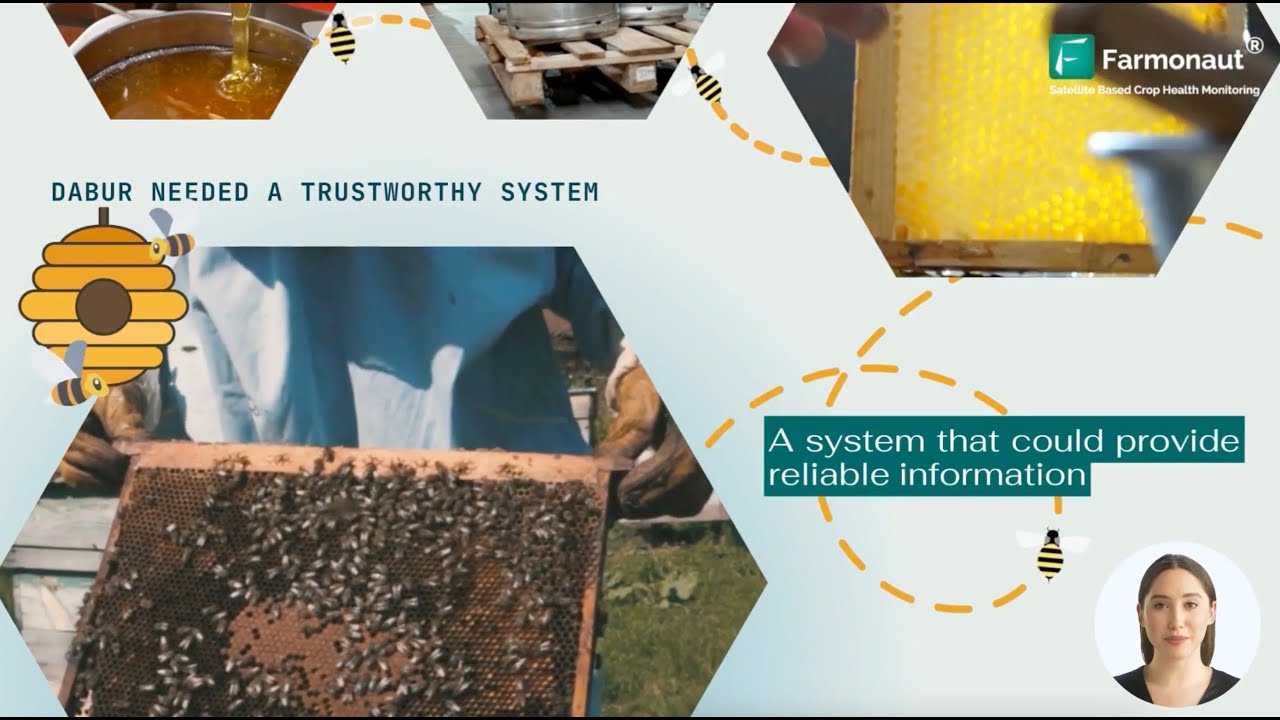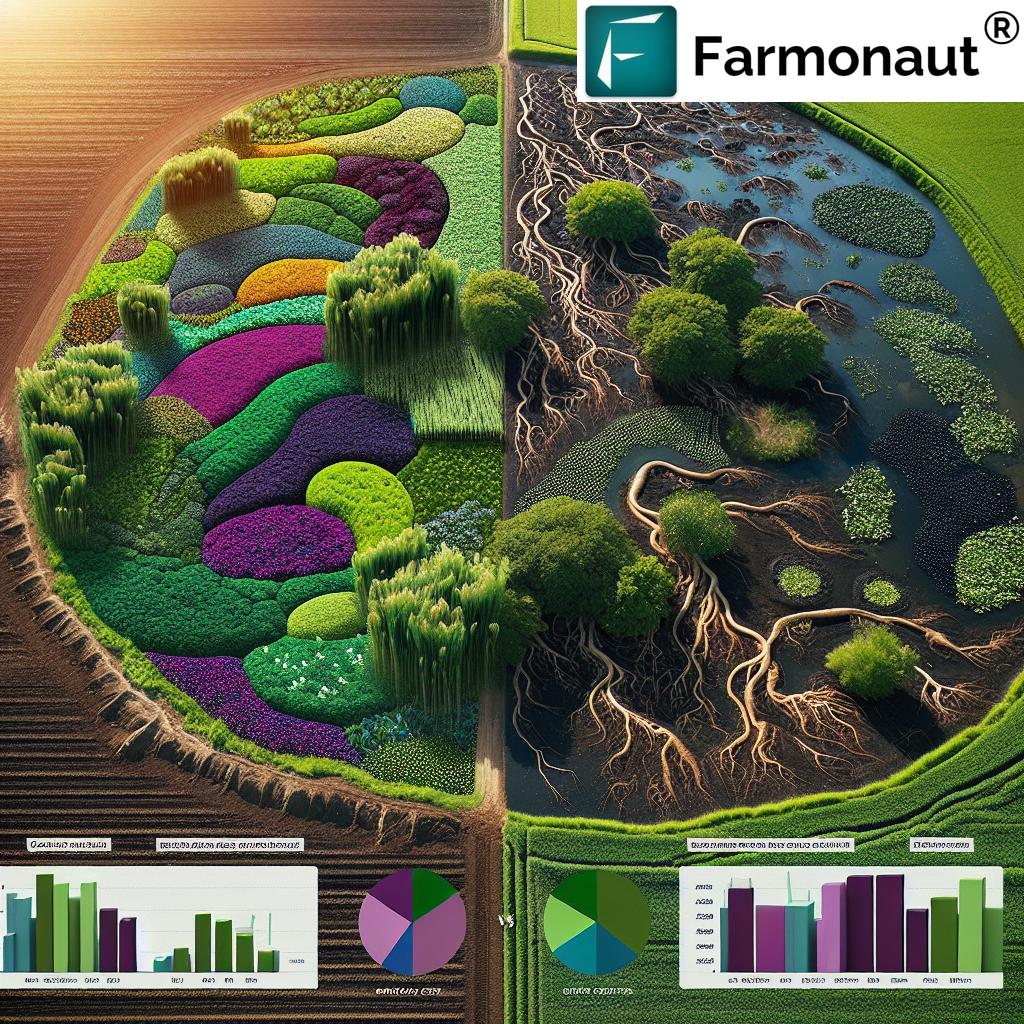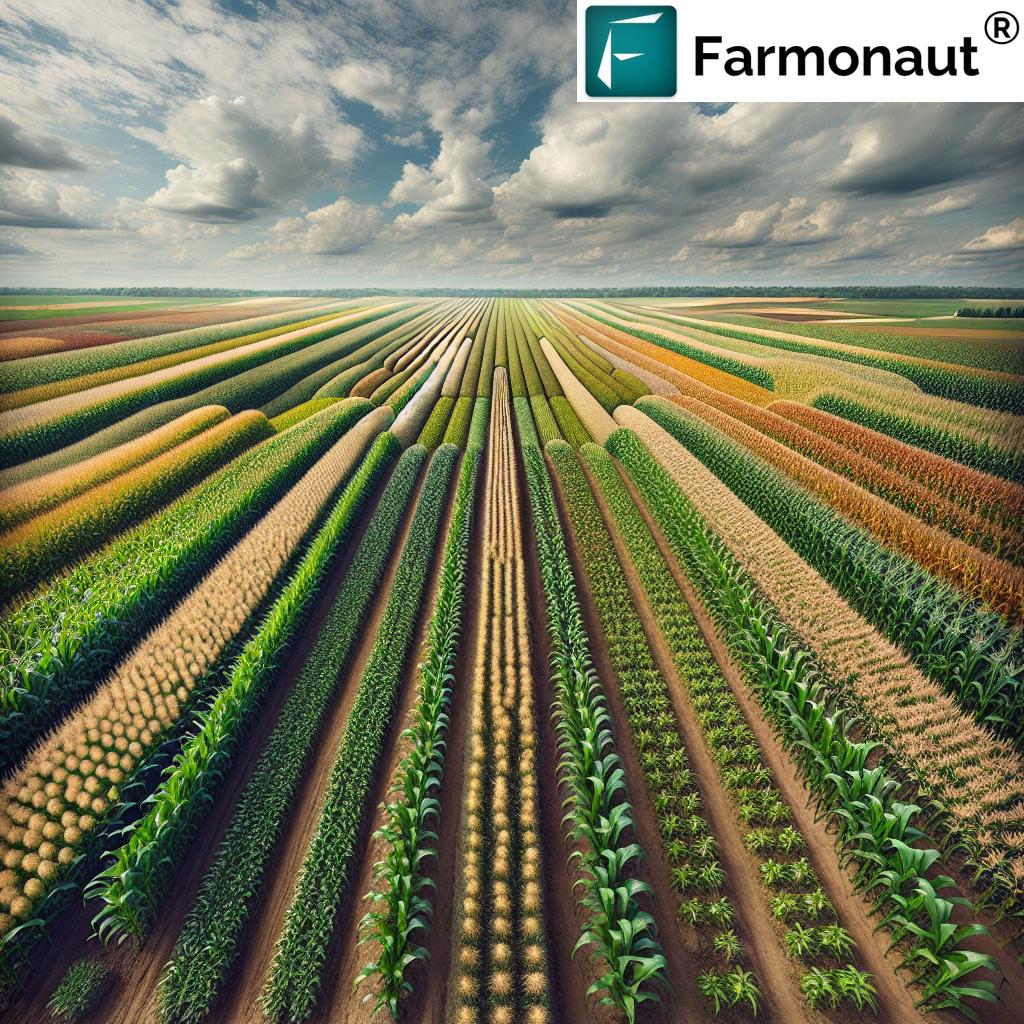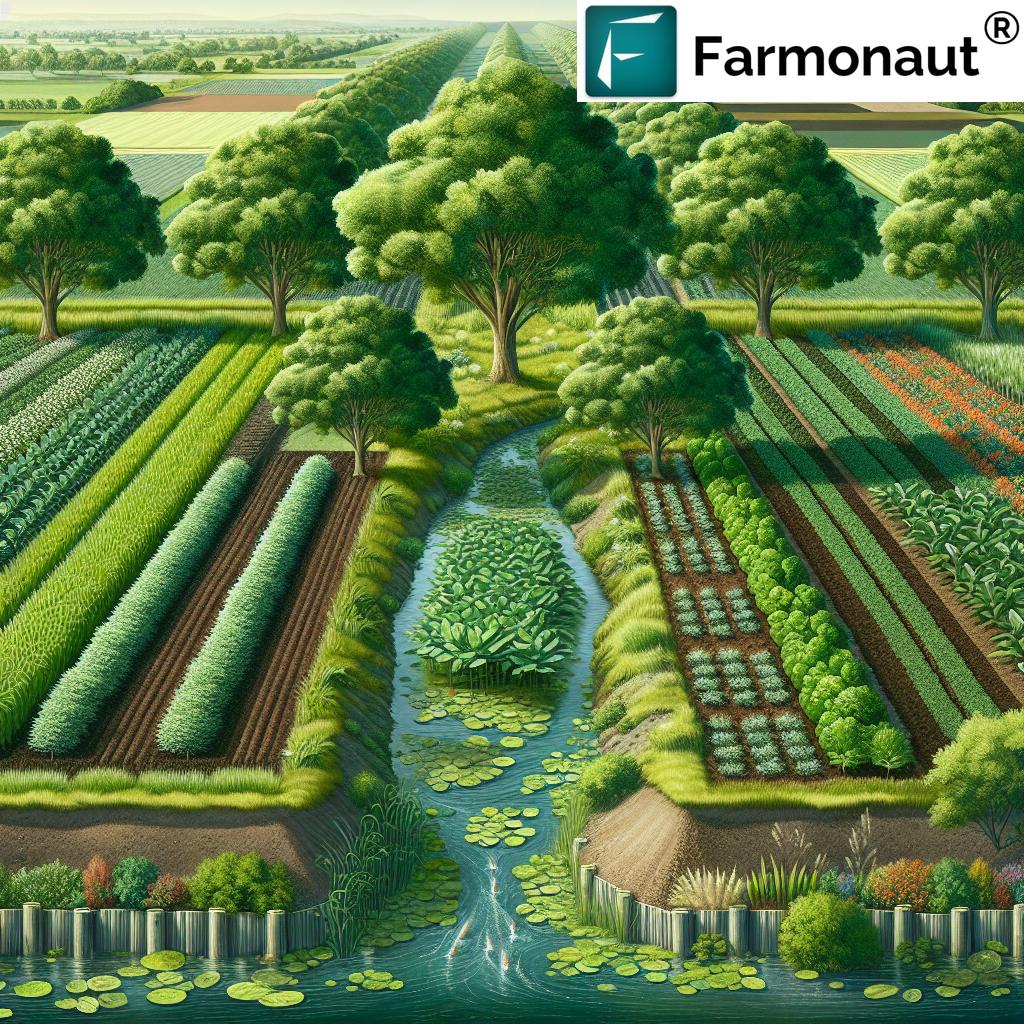Identity-Preserved Grains & Seeds: Boost Traceability, Purity, and Value in Agriculture
“Over 90% of identity-preserved grains achieve full traceability from farm to market, enhancing transparency in supply chains.”
Introduction: Why Identity-Preserved Grains & Seeds Matter
In the rapidly evolving landscape of agriculture, identity-preserved grains and seeds have emerged as a transformative solution. As consumers and supply chain partners increasingly demand traceability, product integrity, and verifiable quality, the significance of IP (identity preserved) grains and seeds continues to grow. Identity preservation is not just a compliance measure—it’s a comprehensive practice that touches every stage of the agricultural value chain, from seed selection to processing and distribution.
Today, buyers expect agriculture products—be they soy, wheat, corn, or other crops—to uphold high purity standards, meet specific traits, and deliver assured quality. This demand is driving the adoption of grain segregation systems and quality assurance in seed production across the world, from the United States to international markets.
This blog provides a comprehensive overview of the process and benefits of identity preservation, emphasizing why it’s crucial for farmers, producers, processors, and consumers. We also examine how innovative technology—such as blockchain and satellite monitoring—boosts traceability in agriculture and supports the production of identity preserved seeds and grains. From ensuring crop purity management to adding market value, identity preservation stands at the forefront of modern, reputable agriculture.
Understanding Identity Preservation in Grains & Seeds
What Does “Identity-Preserved” Mean?
Identity preservation is the comprehensive practice of maintaining the distinct characteristics of specific grains or seeds throughout the agricultural supply chain. It involves measures that prevent contamination and ensure that the unique attributes—such as composition, color, size, or origin—are consistently delivered to the final market.
- Start with the right selection: Farmers acquire seeds with desired traits prior to the growing season.
- Segregation is key: All equipment is cleaned, and lots are segregated during planting, growing, harvest, and storage.
- Full supply chain involvement: Every step—from field to processor to transporter to distributor—is documented and monitored to uphold crop integrity.
Key Aspects of Identity-Preserved Grains & Seeds
- Trait Documentation: Detailed records of attributes such as protein levels, non-GMO status, or organic certification.
- Stringent Segregation: Physical separation in fields, equipment, and storage bins.
- Continuous Monitoring: Regular inspection and testing at each critical point.
- Transparent Traceability Systems: Use of barcodes, data logs, or even blockchain technology to document each stage of production and distribution.
Why Focus on Traceability and Purity?
The market demand for verifiable traits like non-GMO, organic, or specialty qualities makes traceability and purity non-negotiable for premium agricultural products. This is especially true when ensuring quality assurance in seed production, since seed quality directly impacts crop yield and value.
“Identity-preserved seeds can increase market value by up to 20% due to verified purity and quality assurance.”
The Comprehensive Process of IP: From Seed to Market
Identity preservation systems start at the very beginning with seed selection and extend all the way to supply chain documentation. The entire process must be transparent, systematic, and collaborative.
- Selection: Choosing seeds based on size, color, protein content, or other desired characteristics
- Preparation: Cleaning and readying all planting and harvest equipment to avoid contamination
- Segregation: Keeping IP crops separate from conventional lots throughout production and storage
- Documentation: Consistent logging of activities and monitoring for cross-contact
- Verification: Regular laboratory or field testing to confirm trait purity and compliance
Grain Segregation Systems: How the IP Value Chain Works
Stages in the IP Value Chain
The IP value chain is a meticulous, stepwise journey which relies heavily on grain segregation systems, stakeholder collaboration, and strict documentation. Let’s break down each stage:
-
Planning & Contracting:
- Farmers and buyers contract for the production of crops with specific traits.
- Choices are based on market demand, sometimes involving specialty grains like high-protein soy or non-GMO corn.
-
Planting Season:
- Farmers carefully test seeds for the required qualities.
- Cleaning equipment is essential to prevent contamination.
- Segregating planting lots ensures purity.
-
Crop Growing Phase:
- Managing crop inputs (like fertilizers and pesticides) to avoid cross-contact.
- Regular field monitoring and pest/disease management.
- Farmonaut assists farmers by providing AI-driven advisory on optimal input usage based on satellite crop health monitoring.
-
Harvest & Post-Harvest:
- Cleaning harvesters, bins, and trucks between IP and conventional lots.
- Segregated storage bins maintain grain purity.
- Detailed tracking from farm gates to processors and distribution centers.
How Documentation Upholds Crop Integrity
Recordkeeping underpins identity preservation. Each movement and batch change is documented, ensuring problems are quickly traced and product recalls minimized.
- Farm-level logs: Seed batch numbers, planting dates, input applications, field mapping
- Harvest records: Equipment IDs, cleaning records, timing and location data
- Bulk storage: Lot segregation, inventory tracking
- Transport/processing: Chain-of-custody forms, quality test certificates
This level of documentation is increasingly managed using digital systems and, in advanced operations, blockchain-based traceability.
Traceability in Agriculture: Innovations & Systems
At the heart of identity preserved grains is a robust agricultural product traceability infrastructure. Modern traceability systems employ a synergy of advanced technologies and best practices that empower farmers, producers, and buyers to track products at every stage.
Technology Powering Identity Preservation
-
Satellite Crop Monitoring:
Solutions like Farmonaut utilize high-resolution satellite imagery to continuously monitor field health, identify stress, pest incidents, soil moisture, and vegetation growth. This helps in targeted input management and verifying that only chosen fields are used for IP production.
Learn about large scale farm management—ideal for overseeing IP initiatives across big operations. -
Blockchain-Based Traceability Solutions:
Blockchain creates a tamper-proof digital ledger logging every step—from seed purchase, planting, harvest, to processing and distribution. This is crucial for maintaining crop integrity and substantiating product claims.
Explore Farmonaut’s blockchain-based traceability for your crops and supply chain. -
AI-Driven Advisory & Resource Management:
Jeevn AI, offered by Farmonaut, delivers personalized insights on crop health and weather forecasts to guide field-level IP management, further preventing accidental contamination and maximizing yields. -
Carbon Footprinting:
Tracking the carbon footprint of your production activity can boost sustainability credentials for IP crops.
See how to monitor your farm’s sustainability with Farmonaut’s carbon footprinting tools.
Ensuring Quality Assurance in Seed Production and Grains
- Regular Laboratory Testing: Seed and grain samples are tested for purity, trait presence, and absence of contaminants.
- Unique Barcodes & Lot Identifiers: Allow tracking of each batch from planting to final product.
- Certification Standards: IP crops often require meeting higher local or international standards for traceability and quality, such as the U.S. Identity Preservation Certificate.
By leveraging both traditional and cutting-edge traceability technologies, identity preserved seeds and grains can not only protect crop purity but also open new market opportunities and command a price premium.
Economic Implications and Market Value of Identity-Preserved Crops
How IP Affects Costs and Market Value
Producers who transition to identity preserved grains face higher costs due to the stringent measures and extra monitoring required at each stage. For example, a study in Mississippi estimated an average added cost of $0.46 per bushel for identity preserved soybeans, compared to conventional production (source).
- Added investments: Specialized equipment, more labor, dedicated storage and transport, and regular testing
- Quality assurance costs: Certification, documentation, and compliance with stringent IP protocols
Yet, these added costs are often offset by higher market value for the end product. Because consumers and buyers can trust that identity preserved grains and seeds are true to their traits, products can command price premiums of up to 10-20%, especially for non-GMO, organic, or allergen-free varieties.
Market Demand Driving IP Adoption
As international and domestic buyers prioritize transparency and assurance, the demand for identity preserved products expands. Countries like the United States are at the forefront, but adoption is growing rapidly worldwide, including in Asia and Europe.
Comparative Table: Identity-Preserved (IP) Grains & Seeds vs. Conventional Grains
| Feature | IP Grains & Seeds | Conventional Grains |
|---|---|---|
| Traceability Level | High (>90%, farm to market via digital systems) | Low (<50%, minimal recordkeeping) |
| Purity Standards | Strict (tested & verified per lot) | Basic (potential cross-contamination) |
| Quality Control Frequency | Frequent (4-8x/year; at each stage) | Infrequent (1-2x/year; at harvest, rarely per lot) |
| Market Value Premium (%) | 10-20% above commodity price | Baseline market price |
| Recall Risk | Very Low (containment via records) | Higher (difficult to pinpoint affected lots) |
International Practices in Identity Preservation
Going Beyond Borders: IP Implementation Worldwide
While the United States leads in deploying identity preservation systems, the principles are global. For instance, in Nepal, the Specialty Soy and Grains Alliance’s (SSGA) efforts have made it possible for local manufacturers to use the “Identity Preserved United States” brand certificate, increasing product appeal and consumer trust.
Global standards are encouraging more producers to implement:
- IP certification for exported grains and seeds, especially soy and wheat
- Strict segregation during shipping and storage across international borders
- Adoption of digital traceability platforms to keep up with complex international supply chains
These measures further drive the demand for identity preserved grains and seeds, allowing processors and manufacturers worldwide to guarantee purity, quality assurance, and traceability to end consumers.
Challenges in Identity-Preserved Crops & Solutions
While the benefits of identity preservation are vast, several challenges must be addressed for successful implementation:
- Higher Costs: Upfront investment in equipment, staff training, and compliance monitoring.
- Complex Documentation: Maintaining comprehensive, error-free records at scale is resource-intensive.
- Market Unpredictability: Fluctuating demand for specialty lots can impact profitability.
- Regulatory Compliance: Obtaining and maintaining various certifications requires ongoing diligence.
- Risk of Human Error: Cross-contamination or incomplete documentation can jeopardize crop integrity.
How Modern Technology Overcomes These Challenges
-
Digital Recordkeeping & Blockchain: Reduces risks of manual error; enhances supply chain transparency.
Discover Farmonaut’s traceability product to digitize your agriculture records. - AI-Driven Compliance Checking: Automated systems flag inconsistencies and alert users, cutting down on administrative burdens.
-
Remote Crop Monitoring: Satellite technology detects field variation, unusual stress, and helps in early identification of possible contamination.
Farmonaut’s multi-crop monitoring extends affordability to even smallholder farmers worldwide. -
Fleet & Resource Management: Optimizes logistics and storage, reducing overall operational costs.
See how you can reduce machinery costs using Farmonaut’s fleet management tools.
Farmonaut’s Role in Enhancing Traceability & Quality Assurance
Empowering Producers With Affordable, Scalable Digital Solutions
At Farmonaut, our mission is to make precision agriculture and comprehensive traceability accessible for every grower, from smallholder farmers to large commercial agribusinesses.
Our platform integrates advanced technological innovations to simplify identity preservation:
- Satellite-Based Crop Health Monitoring: Track critical crop metrics—NDVI, soil moisture, stress points—for managing purity and improving yield. This enhances grain purity management and field-level monitoring.
- Jeevn AI Advisory: Personalized input recommendations and pest alerts throughout the growing season to keep fields optimal for IP lots.
- Blockchain-Based Traceability: Every batch movement is recorded and verified, strengthening product integrity and consumer trust. Our traceability product supports multiple crops and value chains.
- Fleet & Resource Management Tools: Improve logistics, reduce resource waste, and lower operational costs for IP projects.
- Carbon Footprinting: Monitor real-time farm emissions to align with sustainability goals and international export standards. Learn more about carbon footprinting with Farmonaut.
- Affordable Access via Apps & APIs: Use our easy-to-use mobile and web apps or integrate our API and developer docs with your agribusiness systems.
By providing scalable, robust tools, we ensure that all levels of the agricultural ecosystem can maintain identity preservation with ease, boosting market value and quality assurance.
Subscribe for affordable, precision farm management and traceability:

Try Farmonaut Web & Mobile Apps

Get Android App

Download iOS App
Useful Resources, IP Apps, and API Links for Traceable Agriculture
-
Farmonaut Product Traceability (suitable for grains, seeds, honey, textiles, etc.):
Boost transparency & value -
Multi-crop & forest plantation advisory:
Get actionable insights from Farmonaut -
API Access:
Integrate Farmonaut’s data with your distribution or processing platform /
API documentation -
Fleet management product:
Monitor and optimize your agricultural equipment fleet, cut costs, and enhance safety. -
Crop loans and insurance verification:
Use satellite-based verification to streamline your agri-loan or insurance process -
Carbon Footprinting:
Track emissions for sustainability compliance
FAQ: Identity-Preserved Grains, Seeds, and Traceability
What are identity preserved grains and seeds?
Identity preserved grains and seeds are agricultural products that are kept separate from other conventional products throughout their production, processing, and distribution. This separation ensures that their unique attributes—like non-GMO status, protein content, or specific origin—are retained and can be traced back through the supply chain.
How do identity preservation systems work?
These systems rely on selecting the right seeds, meticulously cleaning and segregating all equipment and storage, recording every movement, and using technologies (such as barcodes, digital logs, or blockchain) for transparent documentation and verification throughout the value chain.
Why is traceability important for grain and seed products?
Traceability ensures product purity, enables rapid response to recalls, supports market claims (like organic or non-GMO), and builds consumer trust. It’s critical for accessing premium markets and for regulatory compliance.
What technologies enable better traceability in agriculture?
Key technologies include satellite crop monitoring, AI-powered advisory, blockchain-based recordkeeping, digital lot tracking, and automated fleet management systems—all of which help reduce human error, enhance documentation, and maintain crop integrity.
Do identity preserved crops fetch higher prices?
Yes, IP products often command a 10-20% price premium due to their verified purity, quality, and traits. The market values transparency, and identity preservation delivers this assurance.
What are the main challenges in identity-preserved agriculture?
The main challenges include higher production and documentation costs, complex logistics, need for stringent compliance at every stage, and fluctuating demand for specialty products. Technology platforms like Farmonaut can help overcome many of these hurdles by digitizing and automating key tasks.
Conclusion: The Future of Identity-Preserved Agriculture
Identity preserved grains and seeds set the gold standard for traceability, quality assurance, and market trust in agriculture. As consumers seek greater transparency and as regulatory demands increase, these practices are set to become essential for producers aiming to enhance market value, minimize risk, and ensure consistent product integrity.
Modern grain segregation systems, digital technologies, and collaborative supply chains underpin this shift. From the United States to international markets, the commitment to purity and traceability is transforming agriculture for the better. While challenges remain, the growing adoption of satellite monitoring, blockchain, and AI advisory is making identity preservation accessible—even for smaller farms.
By embracing these advancements, producers and processors can meet evolving consumer expectations and tap into high-value markets. We at Farmonaut are committed to supporting this journey—making technology-driven precision and traceability in the field both affordable and practical for all.

Access Farmonaut App

Get Android App

Download iOS App
Access API
|
Developer Docs
Identity-preserved agriculture is the bridge to a transparent, sustainable, and high-value food future. Trace every step. Ensure every quality. Choose identity preservation.



















